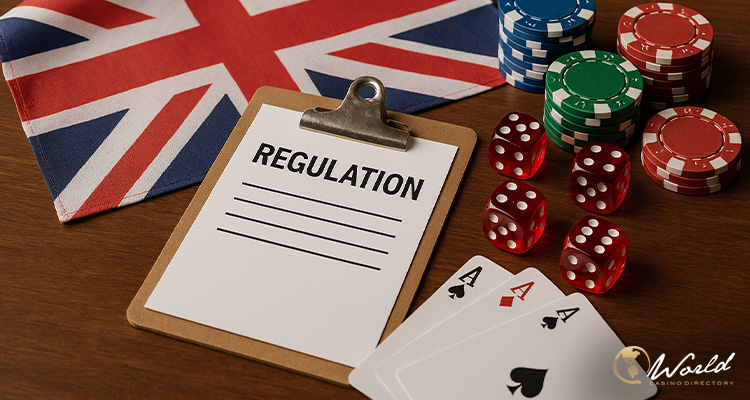Labour’s leadership is encountering growing pressure from within its own party, as an expanding group of backbench MPs pushes for comprehensive reforms to Britain’s gambling regulations. With concerns mounting over the social toll of betting-related harm, the internal movement could lead to a significant shift in government policy—and potentially set Keir Starmer’s administration on a collision course with major party donors.
At the heart of this growing momentum is the newly relaunched All-Party Parliamentary Group (APPG) on Gambling Reform. Chaired by veteran Conservative MP Sir Iain Duncan Smith, the APPG has begun an expansive inquiry into the future of gambling regulation in the UK. The group is soliciting evidence from stakeholders across the political, commercial, and healthcare landscapes, with a deadline for submissions set for 12 September 2025.
The inquiry, which revisits themes from the 2023 Gambling White Paper, seeks to assess whether the existing legislative framework—including the Gambling Act of 2005—remains appropriate in the digital age. Topics under review include online protections, financial risk checks, a statutory levy on operators, stake limits for online slots, the role of the Gambling Commission, and the need for an independent gambling ombudsman.
“It is clear that much more needs to be done to ensure our regulatory framework is fit for the digital age to protect people from harm,” Duncan Smith stated. “This inquiry will play a crucial role in shaping our recommendations to government.”
Labour Backbenchers Rally for Stronger Legislation
The growing discontent is not confined to the opposition benches. A significant number of Labour MPs, particularly those elected in 2024, are aligning themselves with the APPG’s reform agenda. Among the prominent voices calling for tougher oversight are Beccy Cooper, Sarah Coombes, Andrew Pakes, and Alex Ballinger—all of whom support drafting a brand-new Gambling Act to replace the outdated 2005 legislation.
“I think a new Gambling Act will be needed to meet our manifesto commitment to reducing gambling-related harm,” Cooper said. She emphasized that updated legislation must allow for bans on the most addictive products, eliminate child-targeted advertising, and end the normalization of gambling in sports marketing.
Ballinger, a former Royal Marine who has raised alarm over gambling addiction among veterans, also stressed the need to confront the industry’s widespread advertising. “Today’s gambling industry requires stronger and more effective regulation across a range of areas—from advertising and taxation to the future of land-based gambling,” he said.
Gambling as a Public Health Crisis
One of the more radical proposals under consideration is to shift responsibility for gambling oversight from the Department for Culture, Media and Sport (DCMS) to the Department of Health and Social Care. This move would reclassify gambling from a leisure issue to a public health priority. Supporters argue such a reframing is necessary to properly address the estimated one million individuals in the United Kingdom who may be affected by gambling addiction.
Backing for this reorientation comes not only from MPs but also from influential think tanks. The Fabian Society, a founding organization of the Labour Party, has published a report urging the government to consider banning particularly harmful gambling products.
A spokesperson for the DCMS defended the government’s current actions, stating: “This government is absolutely committed to reducing harmful gambling and strengthening protections for those at risk… introducing a stake limit for online slot games and a statutory levy raising £100m each year for research and treatment.”
A Fractured Political Landscape
Labour’s historical ties to the gambling sector are complicating reform efforts. The party has accepted more than £400,000 in donations from gambling firms in the years leading up to the 2024 general election. Both Keir Starmer and Chancellor Rachel Reeves have received contributions from companies like Bet365. Additionally, figures such as former MP Michael Dugher—now head of the betting industry’s lobbying arm—maintain close links to the party.
This has led to fears among reformist MPs that Labour’s leadership may hesitate to take bold regulatory steps. Those fears intensified after the government appeared to water down plans for welfare reform earlier this summer.
However, the shifting power dynamics in Parliament, where many new MPs lack deep connections to the gambling sector, could give momentum to the reformists. “This is a significant moment in the campaign to reform the British gambling industry,” said Will Prochaska of the Coalition to End Gambling Ads, according to The Guardian. “The coming together of a Tory grandee—Sir Iain Duncan Smith—with fresh and passionate backbench Labour voices… is going to be a powerful combination.”
White Paper Reforms: A Starting Point, Not the Finish Line
While the government has so far endorsed some of the 2023 White Paper’s proposals—including a cap on online slot machine stakes and the creation of a statutory levy—critics argue these measures don’t go far enough. There remains a reluctance to impose advertising restrictions or reform licensing laws that are viewed as overly permissive.
The current APPG inquiry will seek to identify areas where the White Paper fell short and recommend additional measures. These may include stricter rules around sports sponsorship, a full advertising ban similar to tobacco legislation, and tighter regulation of new gambling formats such as crypto casinos.
Duncan Smith has been particularly outspoken about the influence of gambling in sports, accusing the government of making a “soft decision” in allowing Premier League clubs to negotiate their own sponsorship agreements. He has repeatedly called for legally binding limits on betting promotions, especially in football.



